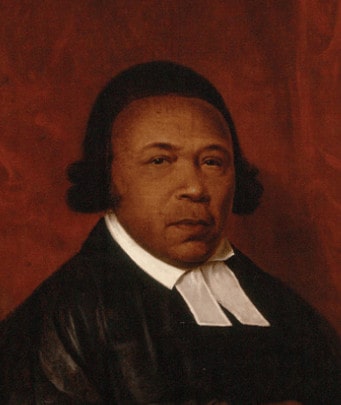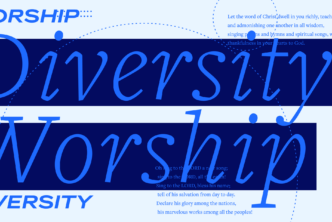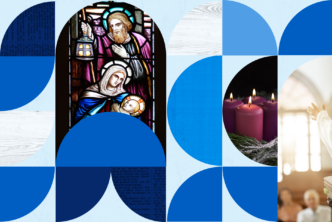By Todd R. Hains
Things are not the way they’re supposed to be. We live in a world filled with suffering and injustice, where the wicked often prosper and the righteous often languish. Scripture assumes this basic truth. Yet it doesn’t provide a clear and simple reason why this is so. Instead, the Bible gives us rhythms and words of protest, prayer, and praise.

The protest of God’s people
Protest: The children of Israel sighed by reason of the bondage, and they cried. (Exod 2:23)
In his sermon, Jones juxtaposes the plight of his African-American sisters and brothers with the plight of the Israelites. The Israelites were treated with great cruelty. To meet production demands, they were not allowed to pause for rest. They were not provided with any food. Their baby boys were drowned to prevent a potential slave uprising. African-Americans were treated with similar cruelty. They were transported, displayed, and auctioned as commodities—like mere cattle or coffee. They too were forced to do hard labor under the sun without being compensated. They were whipped, burned, and tortured.
The prayer of God’s people
Prayer God heard their groaning, and God remembered his covenant with Abraham, with Isaac, and with Jacob. (Exod 2:24)
While we are often blind and deaf to the suffering of our fellow image-bearers, God always sees and hears our suffering. Jones rebuked those who denied the image of God in African-Americans:
Though you have been deaf to their cries and shrieks, they have been heard in heaven. The ears of Jehovah have been constantly open to them: he has heard the prayers that have ascended from the hearts of his people, and he has, as in the case of his ancient and chosen people the Jews, come down to deliver our suffering country from the hands of their oppressors.2
[pullquote]
The same unchangeable, wise, and powerful God who delivered the Israelites always appears ‘in behalf of oppressed and distressed nations, as the deliverer of the innocent, and of those who call upon his name.’”[/pullquote]
The same unchangeable, wise, and powerful God who delivered the Israelites always appears “in behalf of oppressed and distressed nations, as the deliverer of the innocent, and of those who call upon his name.”3 Jones wanted his congregation to know that though the Lord might delay, he always exercises justice. The Lord God is a God of covenant: “For the Lord is good; his mercy is everlasting; and his truth endureth to all generations” (Ps 100:5).
The praise of God’s people
Praise Blessed be the Lord God of Israel; for he hath visited and redeemed his people, And hath raised up an horn of salvation for us in the house of his servant David. (Luke 1:68–69)
Jones ends his sermon of thanksgiving with a high note of praise. The Lord God is the common Creator of all people and all things. He keeps his promises not because of our identity or actions, but because of his mercy and love:
Oh thou God of all the nations upon the earth! We thank thee, that thou art no respecter of persons, and that thou hast made of one blood all nations of men. . . . We thank thee, that the sun of righteousness has at last shed his morning beams upon them. Rend thy heavens, O Lord, and come down upon the earth; and grant that the mountains, which now obstruct the perfect day of thy goodness and mercy towards them, may flow down at thy presence. Send thy gospel, we beseech thee, among them. May the nations, which now sit in darkness, behold and rejoice in its light.4
A biblical response to injustice
Jones pivots from the momentary mercy of banning the trans-Atlantic slave trade to bind God to keep his promises to bring the eternal light of the gospel to the nations shrouded by darkness and deep gloom. Jones prays that, illuminated by God’s word and Spirit, God’s people would tear down any barriers to perfect unity with God and one another. Because God hates nothing he has made, so also his people must hate nothing he has made. This begins with those made in his image.
By using the Israelites’ exodus experience to animate the suffering of African-Americans, Jones does not offer an answer to suffering, but he does provide a response: call on God’s name, remember his mighty words and deeds, and trust his faithful goodness and mercy.
Todd R. Hains is an academic editor at Lexham Press. This article originally appeared in the July/August 2017 issue of Bible Study Magazine.
The headings and title of this post are the additions of the editor. The author’s views do not necessarily represent those of Faithlife.
- Article I, section 9, clause 1: “The Migration or Importation of such Persons as any of the States now existing shall think proper to admit, shall not be prohibited by the Congress prior to the Year one thousand eight hundred and eight, but a Tax or duty may be imposed on such Importation, not exceeding ten dollars for each Person.”
- Absalom Jones, A Thanksgiving Sermon (Philadelphia: Fry and Kammerer, 1808), 13; citing Exod 3:7.
- Jones, A Thanksgiving Sermon, 10.
- Jones, A Thanksgiving Sermon, 20; citing Acts 10:34; 17:26; Isa 64:1; Luke 1:78–79.







